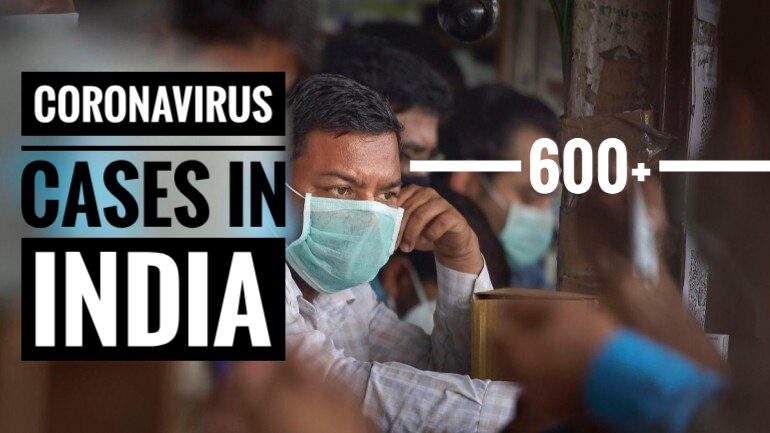Prior to the Coronavirus pandemic, the economic status of India was suffering and was
estimated to have a GDP of less than 4 percent. The shutting down of industries and complete halt to the economic sectors has resulted in extremely adverse conditions economically.
Recently, this claim was supported by the Niti Ayog Vice-Chairperson who stated that the
country will suffer a recession till June with the GDP to hit either zero or negative. Each country is expected to witness a major global recession that will hit the international market, which was confirmed by the International Monetary fund. The United Nations General Assembly recently adopted a UN Resolution which urged countries to adopt comprehensive fiscal and monetary measures to handle the expected economic crisis which most experts fear will be worse than the 2009 economic crisis.
In light of these predictions, Raghuram Raja, the former Governor of the Reserve Bank of India (RBI) who is currently working as a professor in the Univerity of Chicago, wrote extensively on measures that should be adopted by the central government.

Worst Emergency Crisis
Raghuram Rajan wrote that the current pandemic is the largest emergency situation the country may witness, and stated that in 2009 the common people were still working and earning a livelihood unlike in the current scenario. He believes that the lockdown is just the first step in tackling this crisis and that the main focus would be to handle all dimensions of the pandemic.
He urged the government to adopt an economic plan to tackle the consequences of the
pandemic as well as formulate a plan for the recession if the pandemic is not eradicated.
No extension
He stated that though the lockdown is important to cope with the pandemic and that this is our first priority, but at the same time this situation should not be extended as people would begin to oppose it due to a lack of resources and income. He said that it would be hard to keep the country shut for long periods and that the government should consider restarting certain sectors with appropriate measures in low infection areas. For this, he suggested that healthy youth may be lodged with appropriate distancing in hostels near their workplace.”Since manufacturers need to activate their entire supply chain to produce, they should be encouraged to plan on how the entire chain will reopen. The administrative structure to approve these plans and facilitate movement for those approved should be effective and quick – it needs to be thought through now,” he wrote.
Worst hit groups
Further, he focused on the poor and lower-income groups who are stranded without a means to live in these dire times. He wrote that the movement of the migrants is a clear example of the failure of direct transfer to reach those at the lowest rung and that it may be inadequate to suffice the entire month. Such individuals may get frustrated and defy the lockdown to get work.
India was already facing criticism for not spending enough on these groups in spite of the recent financial relief package announced by the Finance Minister Nirmala Sitharaman last month. He tried to explain this by stating the already little resources and huge fiscal deficit of India due to which it cannot spend 10 percent of its GDP like larger nations without fearing a rating downgrade.
Fiscal Deficit
In his report, he stated that the country was already facing a fiscal deficit before the pandemic and that the lockdown put a strain on resources resulting in worsening of the situation.
“Our limited fiscal resources are certainly a worry. However, spending on the needy at this time is a high priority use of resources, the right thing to do as a humane nation, as well as a contributor to the fight against the virus,” he wrote.
He clarified that a ratings downgrade along with the loss of confidence among investors could lead to a huge impact and falling of the exchange rate as well as an increase in long-term interest rates. All of this would lead to great losses suffered by the financial sector of the country.
“So we have to prioritize, cutting back or delaying less important expenditures, while refocusing on immediate needs. At the same time, to reassure investors, the government could express its commitment to return to fiscal rectitude, backing up its intent by accepting the setting up of an independent fiscal council and setting a medium-term debt target, as suggested by the NK Singh committee,” he wrote.
Industries
He also addressed the need to save Small and Medium enterprises that have weakened in the last few years and thus may not have the resources to survive. However, he added that mot all enterprises can and should be saved from failure due to the limited fiscal resources. Some of these enterprises are household operations and would benefit largely from the quantum of direct transfers. He stated that there was a need for measures to be adopted especially for those that ave large human and physical capital. Large firms could also be urged to channel funds to small suppliers, he added He said, adding government agencies and public sector undertakings should also pay their bills immediately to ensure liquidity in the private sector.
Banking Sector
He wrote that the RBI has “flooded” the banking system with liquidity yet there is a need to go beyond this and undertake measures such as lending against high-quality collateral to well-managed NBFCs. However, this measure for more liquidity will not absorb loan losses. The NPAs will continue to build and the RBI should consider imposing a moratorium on dividend payments to build capital reserves. Banks, insurance companies and bond mutual funds can be encouraged to buy investment-grade bond issuances. The RBI can reduce friction by agreeing to lend against their high-quality bond portfolios through repo transactions.
Reform in Crisis
The former RBI Governor ended his post by stating, “It is said that India reforms only in crisis. Hopefully, this otherwise unmitigated tragedy will help us see how weakened we have become as a society, and will focus our politics on the critical economic and healthcare reforms we sorely need.”

